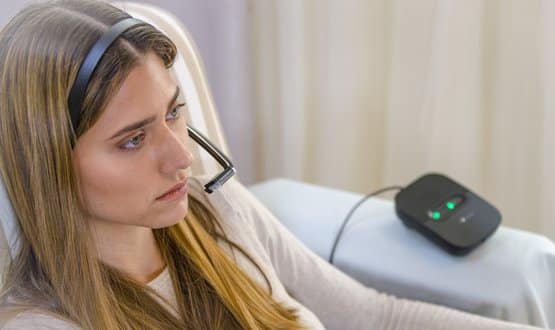EyeControl headset for locked-in patients available on NHS Supply Chain

A headset that enables patients with locked-in syndrome to communicate through eye movements is now available on the NHS Supply Chain Framework.
EyeControl, a wearable device that sports an eye-tracking camera and audio speaker, will be available to NHS patients via the NHS Supply Chain Catalogue.
The device allows individuals who have lost the ability to move or speak but retain full cognitive ability to communicate.
Or Retzkin, CEO of EyeControl, said: “We’re thrilled to be officially working with the NHS to enable patients to once again communicate with their loved ones and carers in a simple, intuitive, and innovative way.”
As reported by Digital Health News in September, EyeControl comprises a head-mounted infrared camera, on-board processing unit and Bluetooth output speaker.
The “AI-powered” device tracks the eye movements of the wearer and generates speech. A bone conduction element that sits within the earpiece provides audio feedback to the user, allowing them to hear the communication before it is sent to the output speaker.
Unlike some other communication devices designed for similar purposes, EyeControl works without the need for a large screen and can be worn by at all times, allowing the wearer to communicate immediately, 24 hours a day.
Helen Paterson, a speech therapist at the Royal Hospital of Neuro-disability in Wandsworth, London, tested device her patients and suggested she was encouraged by the results.
She also said the device was easy to set up and demonstrate to other carers.
“The brilliant thing about EyeControl over alternative communication devices is that it’s quite light and easy to wear and patients can communicate but they don’t have to have a big screen in front of them and they only need to move their eyes up and down and side to side,” said Paterson.
“This means they don’t have to rely on having their device in front of them all the time, which obviously makes communication much easier for locked-in patients.
“For me as a speech and language therapist, working with people face-to-face, it’s really important that we have a system that’s easy to set up, that’s flexible and can be edited and adapted for each patient by the user, but also therapists.”
Giving a voice to the voiceless
Users of the EyeControl system have the choice of using predefined sentences or training it with their own personalised syntax. According to its designers, the learning curve is “extraordinarily simple” and takes only takes users around 20 minutes to become comfortable with the device.
Debbie Burrells, an EyeControl user who was diagnosed with an aggressive form of motor neurone disease six months ago, said: “The best part about it is that you still have your freedom of what you want to say.
“I feel very strongly that we should be able to have one of these before our voices completely go. It’s bad enough to lose communication, but it will be much easier if we could just go over to this new device.”
Retzkin said: “We’re on a mission to provide a voice to as many locked-in individuals such as Debbie as possible and working in conjunction with NHS Supply Chain will allow us to do so.
“We’re excited to deliver the first devices to patients at the end of this year and look forward to seeing our device transform the lives of locked-in patients in the UK, as well as their family and carers.”



